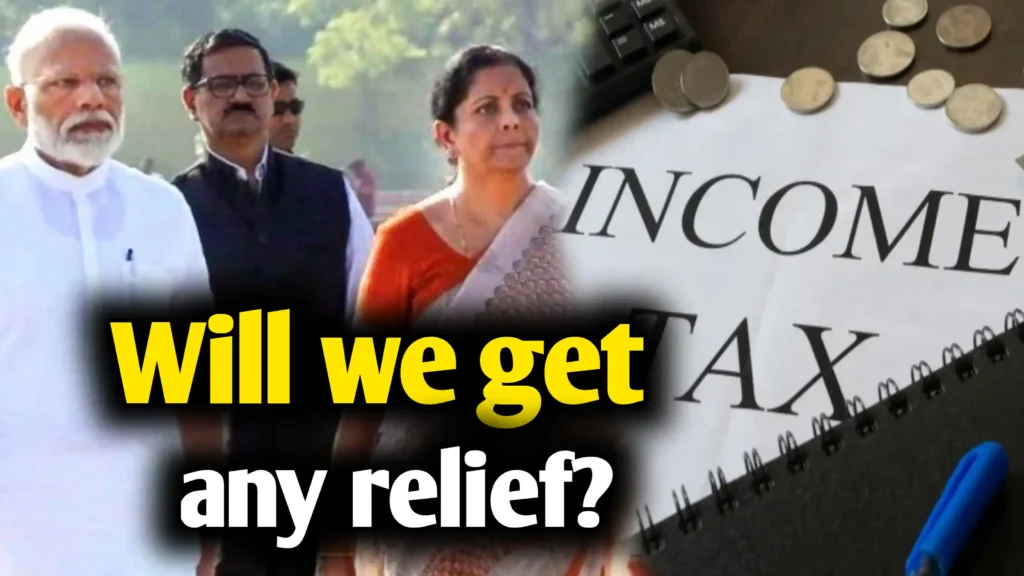Focus on salary class in the first budget of Modi 3.0, will the government increase the income tax exemption limit to Rs 5 lakh?
The Government of India is considering increasing the income tax exemption limit to Rs 5 lakh in the upcoming budget, so that the economy can be boosted by putting more money in the hands of the people through the new income tax system. The government believes that this is a more effective way to provide relief to the people directly instead of schemes.

Government increase the income tax exemption limit to Rs 5 lakh?
New Delhi: The government is planning to bring a major chunk of your salary back in your hands. In Budget 2024, which will be presented in July, the government may make changes in the tax slabs. Currently, there is no income tax on annual income up to Rs 3 lakh. The government is considering raising this limit to Rs 5 lakh.
This change will only apply to those who opt for the new tax regime. The old tax regime offers the benefit of various deductions and exemptions, while the new regime has lower tax rates but fewer exemptions.
The government believes that this will put more money in the hands of people, making them spend more and boosting the economy.
It is important to note that this is still a proposal and the final decision will be taken before the budget is presented.
What is the income tax exemption limit?
The income tax exemption limit is the maximum amount of income on which you do not have to pay income tax. This limit depends on several factors, including:
Your age:
- Exemption limits are higher for senior citizens and persons with disabilities.
- Your residency status: There are different exemption limits for Indian citizens and non-resident Indians (NRIs).
- Claims you make: You can claim deductions and exemptions for certain expenses and investments, which can affect your exemption limit.
- The income tax exemption limits for the financial year 2024-25 are as follows:
Individuals:
- Above 60 years: Rs 5 lakh
- Below 60 years: Rs 3 lakh
- Disabled persons: Rs 5 lakh
Hindu Undivided Family (HUF): Rs 3 lakh
NRIs:
- Above 60 years: Rs 5 lakh
- Below 60 years: Rs 3 lakh
It is important to note that these are only the basic exemption limits. You can use the Income Tax Department’s online tax calculator to calculate the exemption limit applicable for your specific situation.
Apart from the income tax exemption limit, you can also claim various deductions and exemptions, which can reduce your tax liability. Some of the common deductions and exemptions include:
HRA (House Rent Allowance): If you live on rent, you can claim a deduction on the rent paid.
Contributions to PF (Public Provident Fund) and NPS (National Pension Scheme): You can claim a deduction on contributions made to these savings schemes.
Health insurance premium: You can claim a deduction on health insurance premiums paid for yourself and your family.
Education loan: You can claim a deduction on the interest amount of the education loan.
To know more about the various deductions and exemptions available to you, you can visit the Income Tax Department’s website or consult a tax advisor.
Demand to reduce the highest tax rate
Some industries have urged the government to reduce the maximum tax rate in the new tax regime from 30% to 25%.
However, government officials say this change is unlikely to happen. They argue that the government’s focus is on providing relief to low-income earners, not high-income earners.
It is important to note that the new tax regime is still optional. Consumers can opt for the old tax regime, which has many exemptions and deductions.
The new tax regime has lower tax rates, but it also includes fewer exemptions. It remains to be seen which tax regime will be more beneficial in the long run.
The government does not want to make any changes to the old tax system. The main reason for this is that they want to encourage more and more people to adopt the new tax system.
In the new tax system, income above Rs 15 lakh is taxed at a maximum of 30%. In the old tax system, this limit was Rs 10 lakh.
The government believes that lower tax rates will make the new tax system more attractive and encourage people to adopt it. It is also expected that the new system will simplify the tax system and improve compliance.
However, some people have criticized this move. They argue that it gives unfair advantages to the rich and increases the burden on the poor.
It is important to note that the new tax system is optional. People can opt for the old tax system, which has many exemptions and deductions. It remains to be seen which tax system will be more popular in the long run.
Read this also:
Free Solar Rooftop: 20 year free electricity
The Government of India has launched the "Free Solar Rooftop Scheme" to make the citizens of the country aware of solar energy and to free them from electricity problems. If you are not aware of this scheme, please read this article carefully. Eligible citizens will be provided benefits through the "Free Solar Rooftop Scheme
What is the government’s intention?
The government is looking at a tax cut strategy to put more money directly in people’s pockets, rather than increasing spending on programs like subsidies. Their reasoning is that these programs can be inefficient, with benefits not always reaching those who need them most. By reducing taxes, the idea is that people will have more disposable income, potentially stimulating the economy.
A government official argues for tax cuts over increased welfare spending. Their reasoning is two-fold:
- Inefficiency in Welfare Schemes: They believe current welfare programs can be wasteful, with intended benefits not reaching those who truly need them.
- Boosting Purchasing Power: The official highlights a concerning trend – a decline in people’s ability to buy goods (purchasing power) despite economic growth. This suggests a disconnect between economic growth and individual well-being.
The solution they propose is to put more money directly in people’s pockets through tax cuts. The idea is that with more disposable income, consumers will buy more goods, stimulating the economy and potentially bridging the gap between economic growth and individual spending power.


